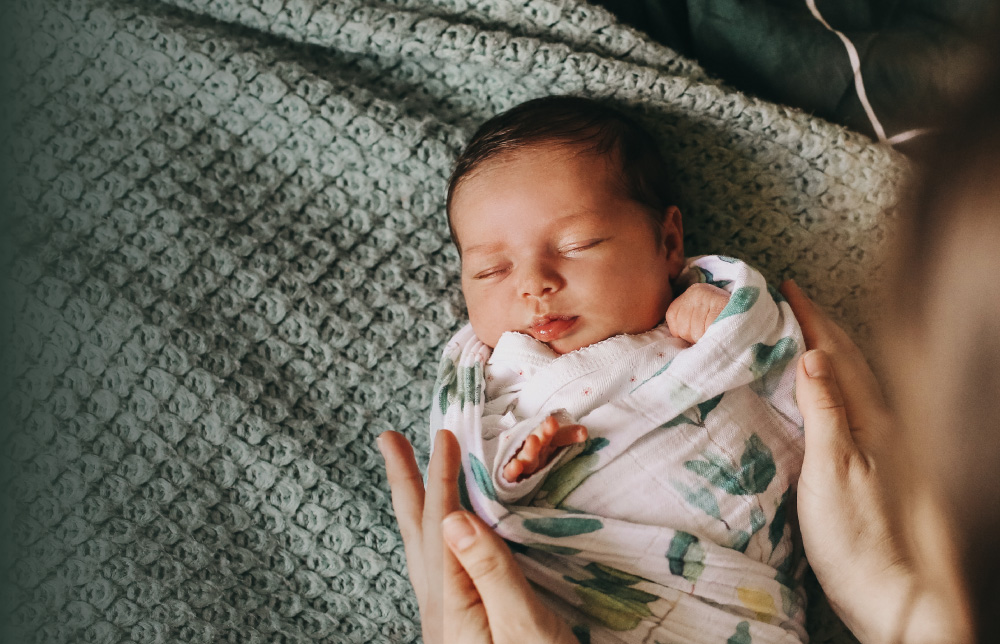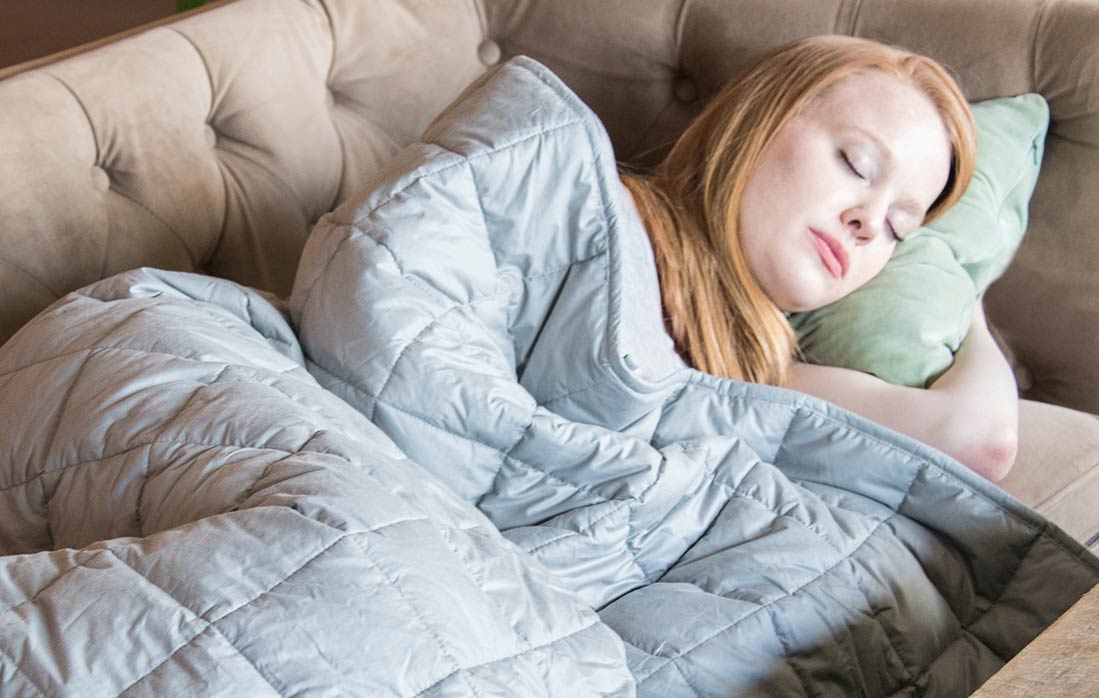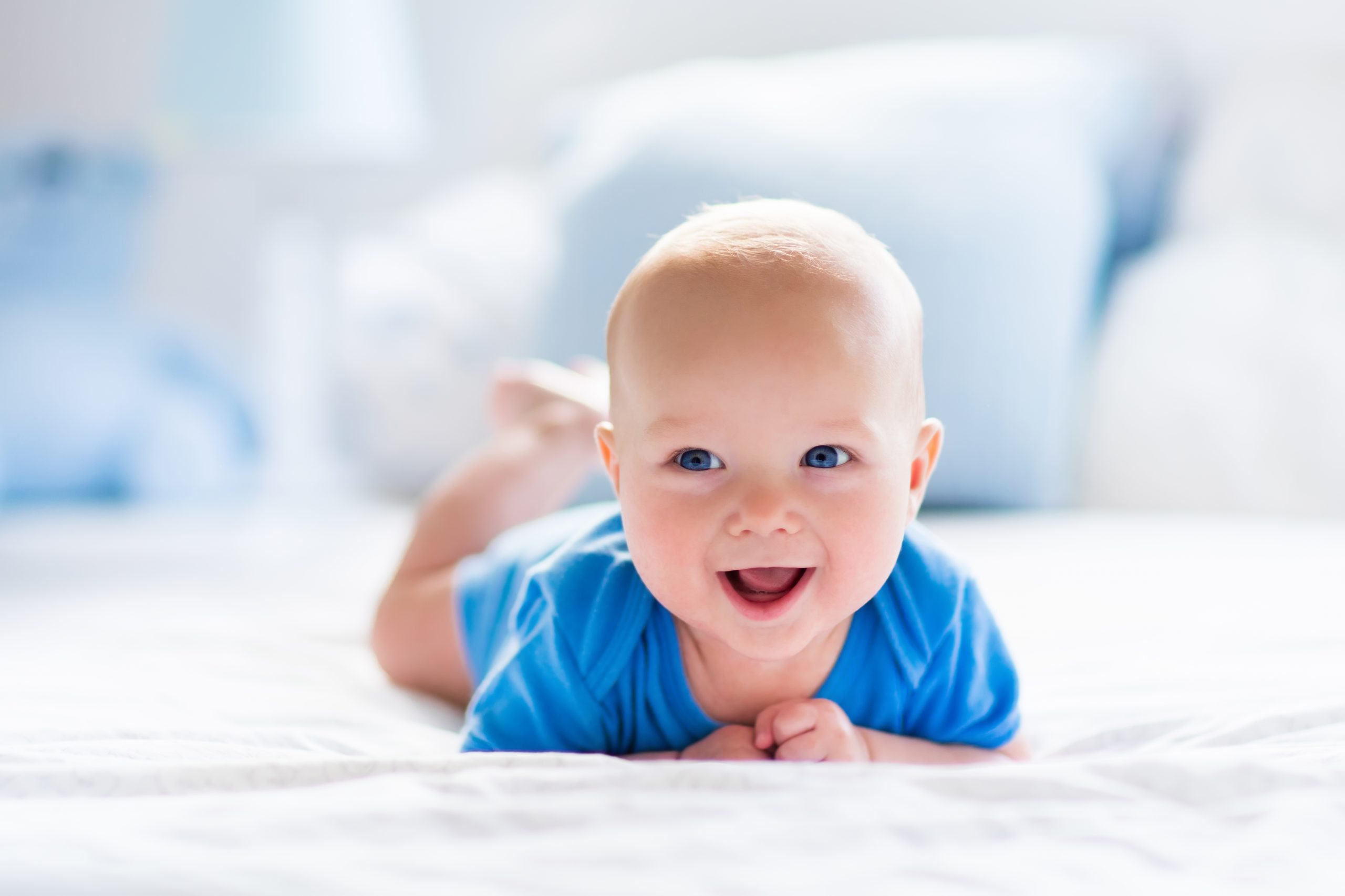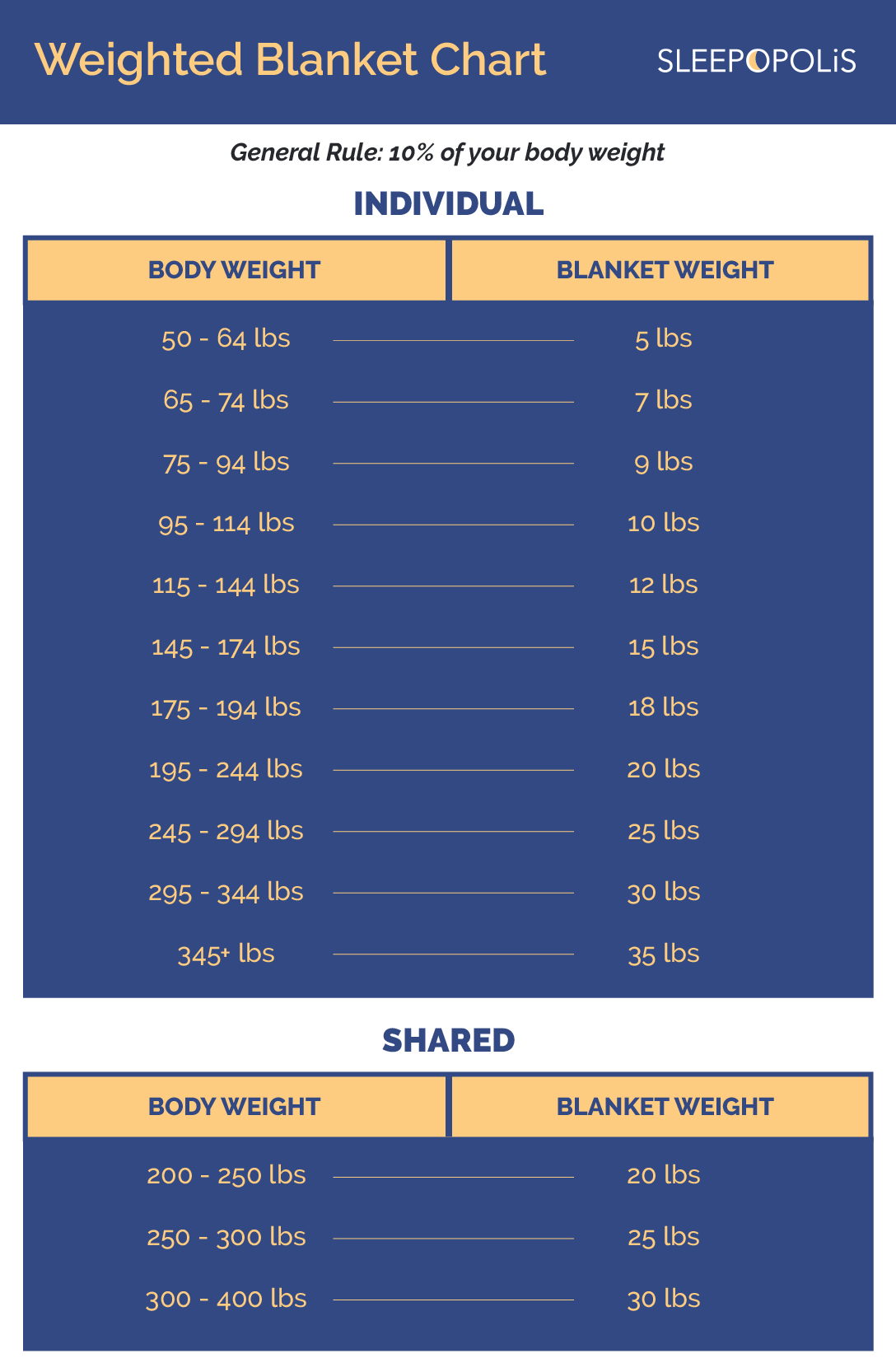
Parents with newborns and babies often have just one thing on their minds — sleep. They can’t get enough of it, can’t string multiple hours together without a feeding or diaper or rocking session, and often look to baby sleep products for help. Weighted sleep sacks, such as those sold by Dreamland Baby Co., have long been seen as a potential solution to soothing a fussy baby for nighttime or naps.
But recently, the U.S. Consumer Product Safety Commission (CPSC) warned against using weighted blankets or swaddles, pointing to advice from the National Institutes of Health and the Centers for Disease Control and Prevention. These mirrored the same advice from a June 2023 letter from the American Academy of Pediatrics (AAP) and additional recommendations from the AAP in 2022, which started the conversation around weighted products for babies. (1)
These recommendations and warnings led to a federal investigation into Dreamland Baby and Nested Bean, another weighted sleep product company, and in late April, Consumer Reports announced that multiple retailers, such as Amazon and Target, would stop selling the products. Tara Williams, CEO of Dreamland Baby, is now suing the CPSC for their “illegal efforts” to ban the product’s sales. In addition, the New Civil Liberties Alliances (NCLA) announced their plan to sue CPSC Commissioner Richard Trumka. Trumka issued statements, such as one declaring the products cause infant deaths, along with letters to major U.S. retailers urging them to stop selling the products, which they did. (2, 3)
The NCLA’s notice says:
“Those letters similarly disparaged these products and leave retailers, as well as the public, with the impression that products like our client’s have caused infant deaths. As Commissioner Trumka is aware, that impression is false. His statements are laced with misrepresentations and deceitful language and imagery about the safety of weighted sleep products like Dreamland’s. Nonetheless, retailers’ responses to his admonishment were swift.
Within days of receiving Commissioner Trumka’s letters the retailers, including Amazon, Target, Babylist, Nordstrom, Maisonette, and more, stopped selling weighted infant products, including Dreamland’s.
Commissioner Trumka does not have the authority to use the weight of his office to effectuate a stop sale on products when he was not able to achieve even a notice of proposed rulemaking through the avenues provided for by law.
As a result of Commissioner Trumka’s unlawful statements and actions, Dreamland has suffered tremendous financial losses. In fact, one retailer has stopped the sale of all of Dreamland’s products, not just its weighted products.”
Williams shared in a statement to Sleepopolis that there are multiple issues with the “theory not fact” behind the AAP, CPSC, NIH, and CDC’s recommendations against sleep sacks, which are widely used in Neonatal Intensive Care Units across the country, she adds.
She shares what she sees as the “facts” instead:
- The AAP’s 2022 recommendations against the sleep sacks “imply a demonstrated evidence of a lack of safety,” she says, yet they only reference one study, which concludes in its results: “A total of 16 patients were enrolled for a total of 67 weighted blanket sessions. To address safety, no adverse events were observed, the weighted blankets were never removed due to infant distress, and infants experienced no significant temperature change. To address feasibility, 94 percent of approached mothers were receptive to the use of weighted blankets and staff reported no obstacles to using the blanket.” (4) Therefore, Williams argues, the study actually demonstrated safety, not risk.
- “Over the past 10+ years, Dreamland Baby and Nested Bean combined have sold over 3.5 million weighted sleep sacks and swaddles with NO evidence of a product hazard.”
- “The AAP, CPSC, NIH, CDC and others have only theorized that our products are unsafe,” Williams says. “They have provided no peer-reviewed, published, or scientific evidence of any kind demonstrating this product category is unsafe, has ANY connection to SIDS, or any other serious injury to babies.”
- The AAP “continued to push the lack of efficacy of weighted products,” Williams shares. But, in a 2022 survey of 500 responses, she shares that 90 percent of parents said it helped their baby feel calm. A company representative shares that another Dreamland Baby Co. survey reported “positive results” from 51 NICUs, but that isn’t publicly available for privacy reasons, they added.
Williams points to a May 9 analysis by New York Times bestselling author and parenting data scientist Emily Oster, who wrote about the safety of weighted sleep sacks. Oster predicts parents will never get a large-scale safety evidence-type study that would really be needed to establish safety or risk. “Where does this leave you, if you’re already happily using a weighted sleep sack and it’s working for you? There is nothing in the data that would suggest it is dangerous, so you’re left to weigh the theoretical concerns against the benefit to your child’s sleep,” she writes.
Consumer Reports shares that there are two reports of infants who have died while wearing a weighted sleep product, though those infants were in infant loungers or swings, also identified as risky by the CPSC.
Williams added in her statement to Sleepopolis, “On a personal note, I created this product for my own child and would never put him or anyone else’s child in something that wasn’t safe. My team is comprised of mostly women and moms who have personally used our product and can attest to its effectiveness along with the over 1,000,000 customers we have helped. I’m proud of our safety record, which is why I’m not backing down in the face of this challenge.”

Are Weighted Blankets Better Than Melatonin at Helping You Sleep? Here’s the Science Behind How They Work

Weighted Baby Sleep Sack Sales Halted at Major Retailers, Including Amazon and Target: What to Know

Lawmakers Urge Parents and Brands to Quit Weighted Blankets: “Death or Injury Waiting to Happen”

How Heavy Should A Weighted Blanket Be?
Sources
1. Rachel Y. MoonRebecca F. CarlinIvan HandTHE TASK FORCE ON SUDDEN INFANT DEATH SYNDROME AND THE COMMITTEE ON FETUS AND NEWBORN; Sleep-Related Infant Deaths: Updated 2022 Recommendations for Reducing Infant Deaths in the Sleep Environment. Pediatrics July 2022; 150 (1): e2022057990. 10.1542/peds.2022-057990
2. NCLA; “NCLA Plans to Sue CPSC over Comm’r Trumka’s Illegal Efforts to Stop Sales of Weighted Sleep Sacks,” New Civil Liberties Alliance; https://nclalegal.org/press_release/ncla-plans-to-sue-cpsc-over-commr-trumkas-illegal-efforts-to-stop-sales-of-weighted-sleep-sacks/; May 9, 2024.
3. CPSC; “TARGET, WALMART, NORDSTROM, AND BABYLIST COMMIT TO STOP
SELLING WEIGHTED INFANT PRODUCTS,” Consumer Product Safety Commission; https://www.cpsc.gov/s3fs-public/Trumka_Statement_Weighted_Infant_Products_4_26_24_with_attachments.pdf?VersionId=iK5EDmatuGu9_z2jKt8t8BaWndFKwWC; April 26, 2024.
4. Summe V, Baker RB, Eichel MM. Safety, Feasibility, and Effectiveness of Weighted Blankets in the Care of Infants With Neonatal Abstinence Syndrome: A Crossover Randomized Controlled Trial. Adv Neonatal Care. 2020 Oct;20(5):384-391. doi: 10.1097/ANC.0000000000000724. PMID: 32868588.
Williams, Tara. Author interview. May 2024.


























